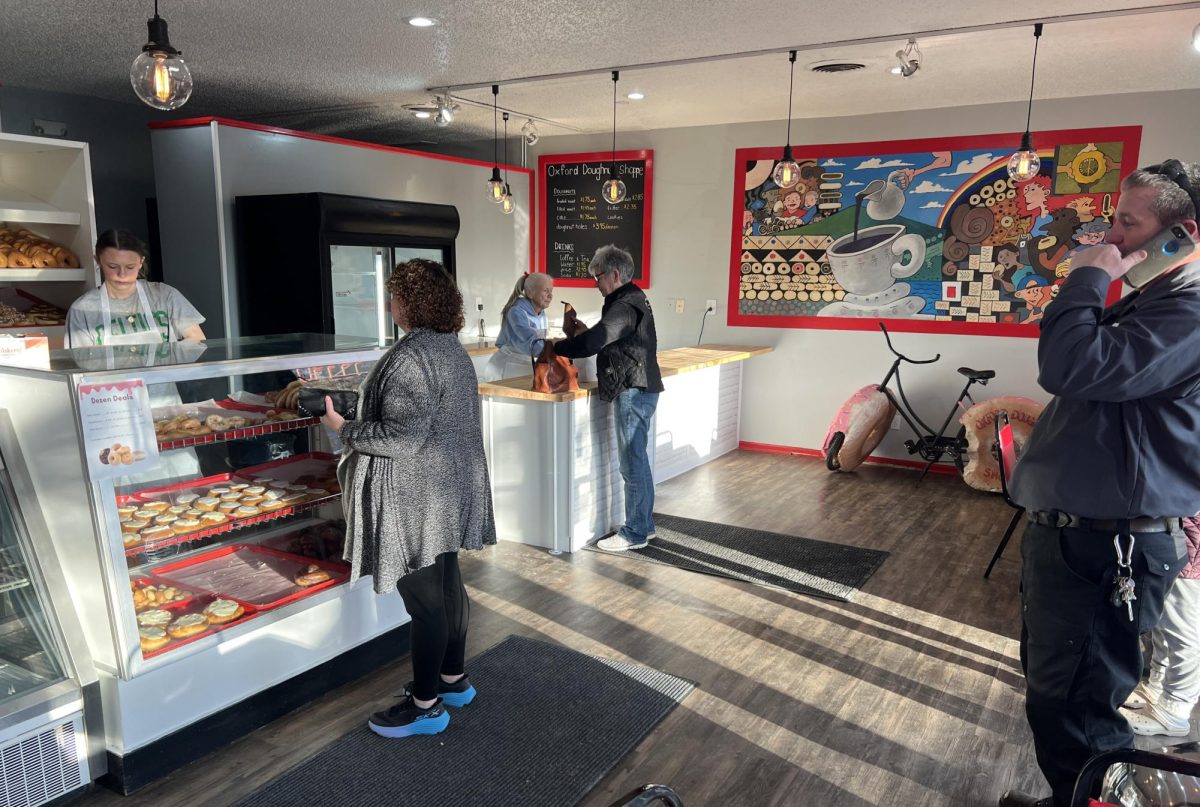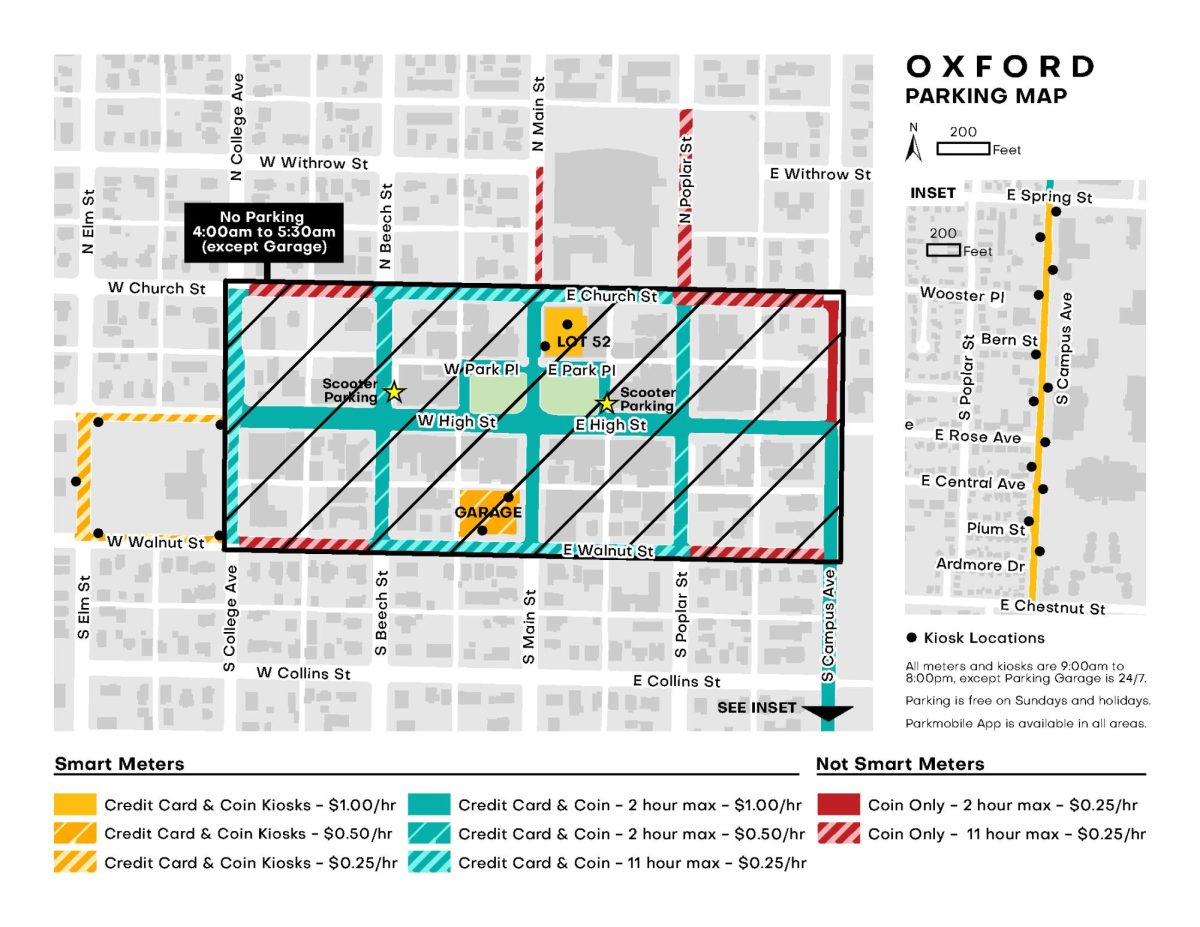Oxford’s plans to institute a bike sharing program went off the road this summer when the contractor tried to add scooters to the traffic.
The push for a bike share program has been ongoing for about a year, motivated largely by Miami students working with city council. Bringing bike sharing to Oxford was a major part of former student body president Maggie Callaghan’s platform.
The city had planned to implement bike sharing on Aug. 10 through an agreement with Spin, a San Francisco-based company that has provided bike sharing in cities and on college campuses across the country.
The agreement would have provided 50 dockless bikes, which could be accessed and paid for through a smartphone app. The company planned to work with the city to establish the service area within which the bikes could be activated and the designated places where the bikes would be left. The program would have come at no cost to the city.
However, less than two months before the start date, Spin said they would only provide bikes if the city agreed to accommodate the company’s motorized scooters as well, according to City Manager Doug Elliott.
Elliott rejected this deal, as it had not been previously discussed with city council, and just like that, Oxford was left without a bike share program.
Though a contract had been signed, its terms stated that the agreement could be terminated by either party as long as 30 days’ notice was given.
Spin has not responded to requests for comment.
LimeBike is another California-based company that the city had been considering, but according to Elliott, LimeBike has not offered a proposal.
“Both of these companies have focused their efforts on scooters rather than bikes,” Elliott said. “They don’t seem as interested in promoting their bike share program as they did in the beginning.”
One reason for this push for e-scooters is that they bring in more revenue to the companies than bikes.
Spin’s website features its scooters prominently, while not mentioning bikes at all. The company introduced scooters in February.
The city might yet reconsider a deal with Spin to accommodate both bikes and scooters.
Bikes alone have been known to cause trouble in bigger cities, where the lack of docks to park them have led their users to leave them in inconvenient spots or pile them up in one place. Oxford City Council was prepared to deal with the problems that could arise during the trial period.
But e-scooters come with even more complications. Because they are motorized, they can achieve faster speeds, which introduces a greater danger to pedestrians. They must also be charged each night. However, instead of charging stations, the company would hire local people to charge and take care of the scooters.
“One of the things we’ll need to do if we consider scooters is to adopt some regulations and possibly a permit process,” Elliott said.
Regulations could include only allowing the vehicles to be parked in certain areas, requiring riders to wear helmets, mandating that the company provide information on vehicle usage and relocating the vehicles to designated areas every evening.
Below is a comparison of bike and scooter services offered by the two companies.
The city manager plans to draft a bike and e-scooter sharing operational plan to present to the council in August.
“Once a registration and operational plan is in place, we hope both Spin & LimeBike will reconsider coming to Oxford,” said Alan Kyger, director of development, who is also working to bring a bike share program to the city.
Until such plans are implemented and the city brokers a new deal with one of the companies, bike sharing in Oxford will remain an uncertainty.






